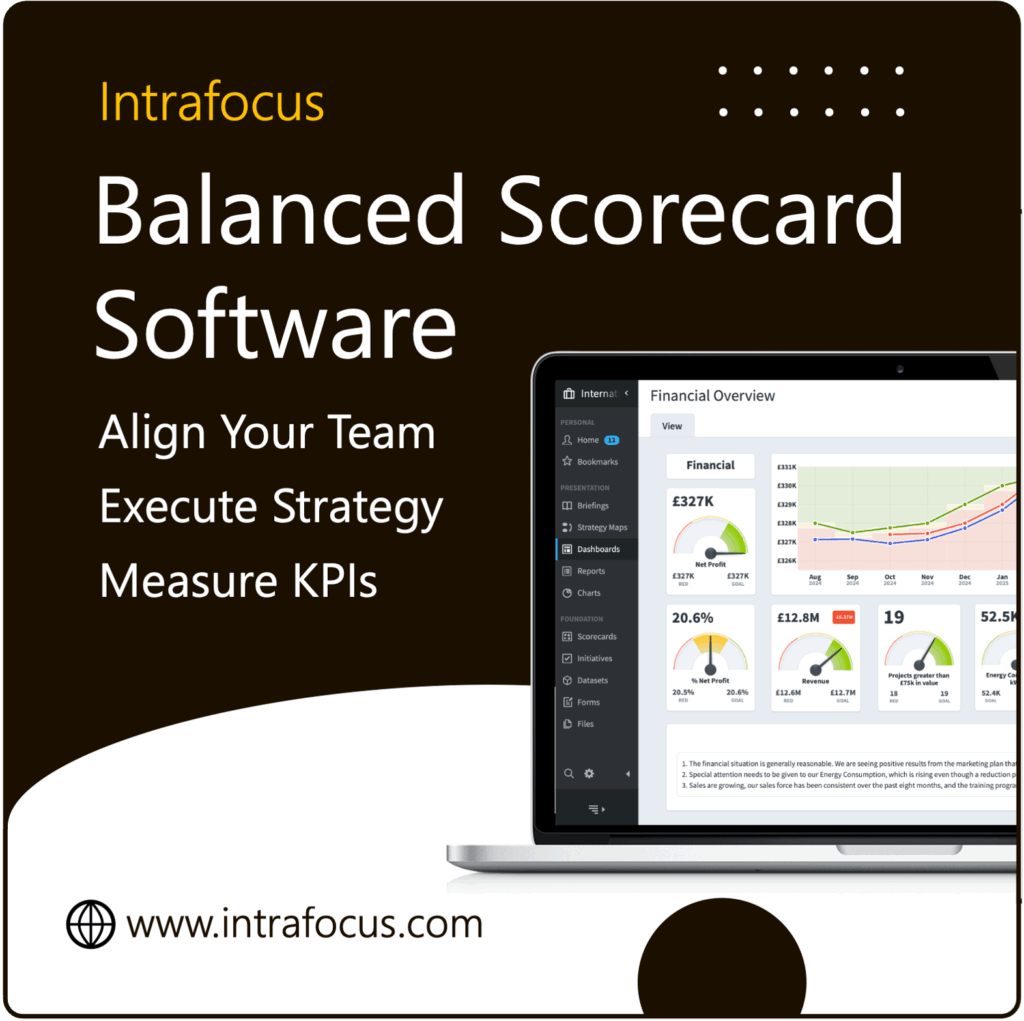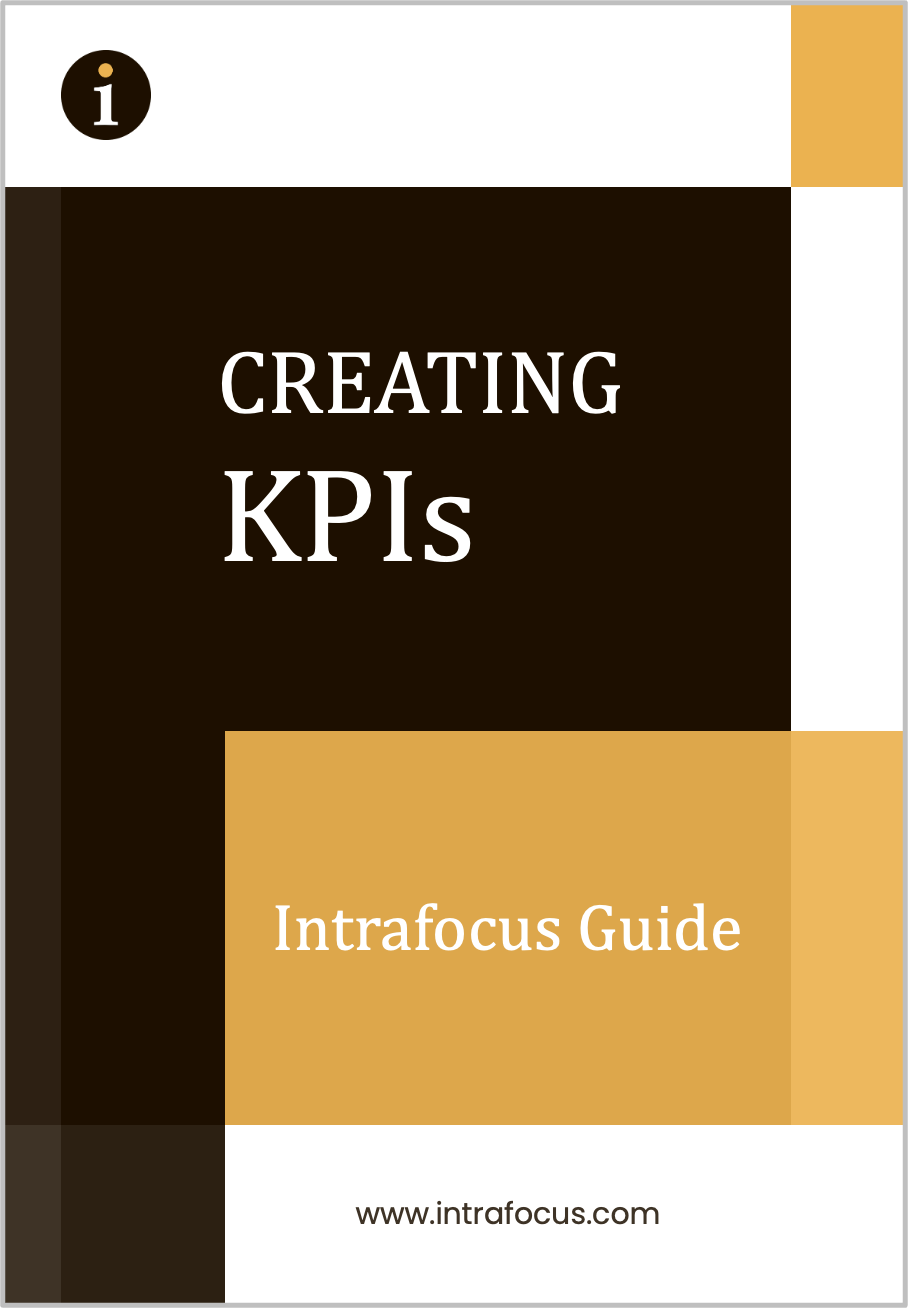The Balanced Scorecard, introduced by Robert Kaplan and David Norton in the early 1990s, has revolutionised how organisations measure performance and implement strategy. Traditionally, businesses focused primarily on financial metrics to gauge success. However, the Balanced Scorecard expanded this view by incorporating additional perspectives: Customer, Internal Processes, and Learning & Growth. This comprehensive approach ensures that businesses consider various factors contributing to long-term success.
As the business landscape evolves, organisations must stay updated with emerging trends and technologies that impact strategic management. Over the years, the Balanced Scorecard has been adapted to include new metrics and methodologies that reflect these changes. This article will explore the future trends shaping the Balanced Scorecard and strategic management. We will delve into the growing importance of sustainability and ethical considerations, the evolving role of technology in performance management, and predictions from experts on what lies ahead.
By understanding these trends, businesses can better prepare for the future and ensure their strategies remain relevant and practical.
Emerging Trends
In today’s fast-paced business environment, staying abreast of emerging trends in strategic management is essential for maintaining a competitive edge. One of the most significant trends is the rise of data-driven decision-making. Companies increasingly leverage vast data to gain insights and make informed strategic choices. This shift towards data-centric strategies allows organisations to identify patterns, predict outcomes, and optimise performance more accurately.
Another critical trend is the growing emphasis on agility and flexibility in business strategies. Traditional, rigid strategic planning processes are being replaced by more dynamic approaches that allow quick adjustments in response to market changes. This agility is crucial in an era of rapid technological advancements and shifting consumer preferences. Companies that can swiftly pivot their strategies are better positioned to capitalise on new opportunities and mitigate risks.
Digital transformation continues to play a pivotal role in shaping strategic management. Integrating digital technologies into all areas of a business enhances operational efficiency, drives innovation, and creates value for customers. For instance, digital tools and platforms enable real-time performance monitoring and more effective organisational communication, facilitating a more cohesive and responsive strategic approach.
Furthermore, strategic management is expanding to include a broader array of considerations. Businesses are now looking beyond traditional financial metrics and incorporating customer satisfaction, employee engagement, and corporate social responsibility into their strategic frameworks. This holistic view ensures that all aspects of the business contribute to its long-term success and sustainability.
In summary, data-driven decision-making, increased agility, digital transformation, and a more comprehensive approach to performance measurement are shaping the future of strategic management. By embracing these trends, organisations can develop more robust and adaptable strategies that meet the demands of a constantly evolving business landscape.
Sustainability and Ethics
Incorporating sustainability and ethical considerations into the Balanced Scorecard is becoming increasingly important as businesses recognise their broader responsibilities to society and the environment. This shift reflects a growing awareness that long-term success is not just about financial performance but also about creating value for all stakeholders, including employees, customers, communities, and the planet.
One key aspect of this trend is the integration of environmental, social, and governance (ESG) metrics into the Balanced Scorecard. Companies are beginning to track and report on their environmental impacts, such as carbon footprint, energy usage, and waste management. Social metrics might include employee well-being, diversity and inclusion, and community engagement. Governance metrics focus on ethical business practices, transparency, and accountability. By incorporating these metrics, businesses can ensure they are meeting the expectations of increasingly conscientious consumers and investors.
For instance, companies like Unilever and Patagonia have successfully integrated sustainability into their strategic management. Unilever’s Sustainable Living Plan aims to decouple business growth from environmental impact, while Patagonia’s commitment to environmental activism and sustainable product development has strengthened its brand reputation and customer loyalty. These examples demonstrate how sustainability initiatives can align with business objectives to drive financial and non-financial performance. The Future of the Balanced Scorecard
Ethical considerations are also gaining prominence in strategic management. Companies are held accountable for their actions and expected to operate with integrity. This includes fair labour practices, ethical sourcing of materials, and responsible marketing. By embedding ethical values into the Balanced Scorecard, businesses can ensure that their strategies are effective and principled.
Integrating sustainability and ethics into the Balanced Scorecard reflects a broader shift towards responsible business practices. By tracking and managing ESG metrics, companies can build more resilient and reputable brands, meet stakeholder expectations, and contribute to a more sustainable future.
Predictions for the Future
As we look to the future, experts predict several key trends that will further transform the Balanced Scorecard and strategic management. These predictions highlight the ongoing evolution of business practices and the increasing complexity of managing performance in a rapidly changing environment.
One major prediction is the continued integration of advanced technologies. As AI and machine learning become more sophisticated, their role in strategic management will only grow. Future Balanced Scorecards will likely incorporate more predictive analytics and automated decision-making processes, allowing businesses to anticipate challenges and opportunities more accurately. This shift towards automation will enable organisations to make faster, data-driven decisions, enhancing their agility and responsiveness.
Another significant trend is the growing emphasis on sustainability and corporate social responsibility (CSR). As global awareness of environmental and social issues increases, businesses will be expected to demonstrate their commitment to sustainable practices and ethical behaviour. Future Balanced Scorecards will likely include more comprehensive ESG metrics, ensuring that companies focus on financial success and contribute positively to society and the environment.
The rise of remote work and global teams is also expected to impact strategic management. As businesses become more decentralised, tools will be needed to facilitate collaboration and communication across diverse locations. Digital platforms and cloud-based solutions will continue to play a crucial role in this area, enabling real-time updates and coordination among team members worldwide.
Moreover, the future will shift towards more personalised and customisable Balanced Scorecards. Businesses will recognise that one size does not fit all, and they will develop tailored scorecards that reflect their unique goals, industry requirements, and stakeholder expectations. This customisation will help organisations create more relevant and practical strategies, driving better performance outcomes.
Advancements in technology, a stronger focus on sustainability, the rise of remote work, and the need for personalised approaches will shape the future of the balanced scorecard. By staying ahead of these trends, businesses can ensure that their strategic management practices remain robust, adaptive, and aligned with their evolving goals and values.
The Future of the Balanced Scorecard
The Balanced Scorecard continues to be a vital tool for strategic management, evolving alongside emerging trends and technologies. By incorporating data-driven decision-making, embracing sustainability and ethics, leveraging advanced technologies, and adapting to the future predictions, businesses can ensure their strategies remain relevant and effective.
Integrating AI, machine learning, and big data analytics transforms how organisations analyse performance and make decisions. Companies are expanding their Balanced Scorecards to include comprehensive ESG metrics as sustainability and ethical considerations gain prominence. Additionally, the rise of remote work and global teams necessitates tools that facilitate seamless collaboration and communication.
Looking ahead, the future of the Balanced Scorecard will involve even greater customisation, ensuring that strategic frameworks are tailored to meet each organisation’s unique needs. By staying informed and proactive in adopting these trends, businesses can enhance their performance management practices and achieve sustained success.
As you consider the future of your strategic management, it’s essential to have the right tools in place. Intrafocus offers advanced Balanced Scorecard software to help you manage your performance metrics effectively. Look at Spider Impact to learn how the solution can support your strategic goals and drive your organisation forward.
By leveraging cutting-edge technology and staying attuned to emerging trends, you can ensure your business remains competitive and poised for future success.



